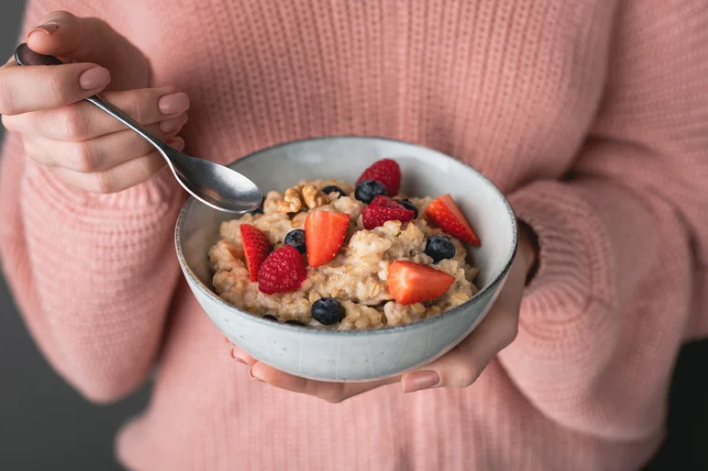
Imagine experiencing severe abdominal pain, alternating between constipation and diarrhea, and being told by your health care provider that no physical explanation can be found. Unfortunately, this is a common reality for people living with Irritable Bowel Syndrome (IBS). While the symptoms are very real, IBS is considered a functional gastrointestinal disorder, meaning no structural abnormalities are typically detected through medical testing.
Symptoms & Diagnosis
Common symptoms of IBS include:
- Abdominal pain or cramping
- Bloating and excessive gas
- Diarrhea and/or constipation
- Mucus in the stool
Because no physical damage or abnormalities are usually found in the colon, IBS is typically diagnosed by a process of elimination. A diagnosis is generally made after symptoms have been persistent or recurrent for at least three months and other conditions, such as Crohn’s disease or ulcerative colitis, have been ruled out.
Treatment Approaches
IBS management is most effective when using a team approach that may include a physician, a registered dietitian, and a mental health professional. This coordinated care model provides medical evaluation, nutrition guidance, and support for managing stress, which often plays a role in symptom flare-ups.
A registered dietitian can be especially helpful in identifying food triggers and developing a personalized nutrition plan. Because food and eating habits vary widely, keeping track of what you eat—and when symptoms occur—can be an invaluable tool. A food and symptom diary should include meals, portion sizes, timing, activities, and even emotions around the time of eating. This record can help identify patterns and guide individualized treatment.
General Eating Tips
- Eat meals and snacks at regular times throughout the day. Smaller, more frequent meals may be easier to tolerate.
- Chew food thoroughly and eat slowly. If rushed, start with smaller portions.
- Reduce swallowed air by sipping (not gulping) beverages, avoiding straws, and eating with your mouth closed.
- Aim for about eight cups of water daily.
- Ask your health care provider if a fiber supplement such as Metamucil or Citrucel is appropriate. Avoid sugar-free versions that may contain artificial sweeteners or sugar alcohols, which can worsen symptoms.
- Keep Fibercon capsules handy if meals are delayed.
- Peppermint may help relieve intestinal spasms; options include peppermint tea, oil capsules, or even strong peppermint lozenges.
Tips for Eating Fiber
- Gradually increase fiber intake to 25–35 grams per day.
- Focus on soluble fiber first, especially on an empty stomach. Good sources include oatmeal, pasta, rice, potatoes, sourdough bread, soy products, barley, and oat bran. Nuts, beans, and lentils also provide soluble fiber, though they may contain fat or insoluble fiber that should be introduced carefully.
- Avoid large amounts of insoluble fiber on an empty stomach. Insoluble fiber is found in wheat bran, whole grains, and whole-wheat products.
- Limit high-fat foods to no more than 25% of your daily calories, and avoid eating high-fat meals without soluble fiber.
Possible Trigger Foods
IBS triggers vary, but some foods are commonly reported to cause symptoms. Monitor your tolerance rather than eliminating entire food groups, and test one food at a time in small portions. Potential triggers include:
- Legumes (beans, lentils, chickpeas, etc.)
- Caffeine from coffee, tea, or energy drinks
- Herbal stimulants such as guarana or kola nut
- Carbonated beverages
- Alcohol
- Melons
- Cruciferous vegetables (broccoli, cauliflower, cabbage, Brussels sprouts)
- Other gas-producing vegetables (onions, corn, beets, cucumbers, leeks)
- Sugar alcohols (sorbitol, mannitol, xylitol) found in sugar-free products and some medications
- High-fat or fried foods
- Dairy products containing lactose
- Bran and certain cereals (wheat, oat, cornmeal)
Other Healthy Habits
- Incorporate 30–60 minutes of moderate exercise most days.
- Practice stress-reducing activities such as yoga, meditation, or Tai Chi.
- Prioritize sleep, as poor rest can worsen symptoms and reduce stress resilience.
- Avoid smoking.
- Ensure dentures or dental appliances fit properly to reduce excess air swallowing.
Key Takeaway
Managing IBS often requires patience, tracking, and support from a healthcare team. With the right combination of dietary adjustments, stress management, and lifestyle strategies, many people are able to reduce symptoms and improve their quality of life.
This article was reviewed by a PeopleOne Health Registered Dietitian.













